Publications
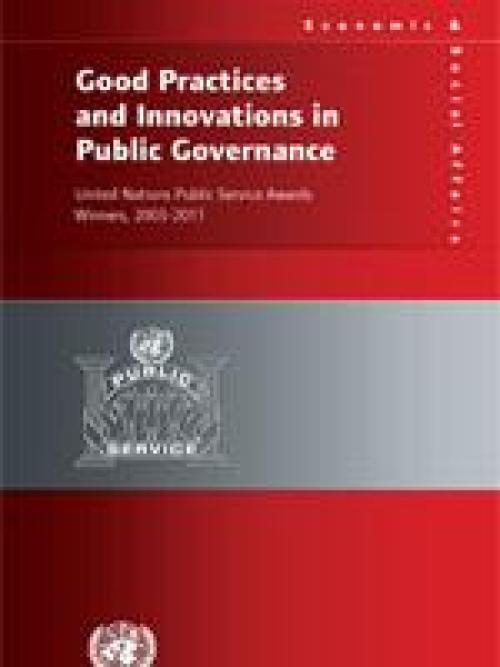
This publication provides an overview of 145 successful innovations in governance and public administration from 50 countries that received the United Nations Public Service Awards, which is the most prestigious international recognition of excellence in public service.
The purpose of the series is to disseminate, through descriptive case studies, information about innovative practices by:
(i) looking at the problem that led to an innovation;
(ii) the solution that was designed and implemented to respond to the specific challenge;
(iii) the actors and steps involved in the innovation process, and
(iv) lessons learned. Learning more about how public…
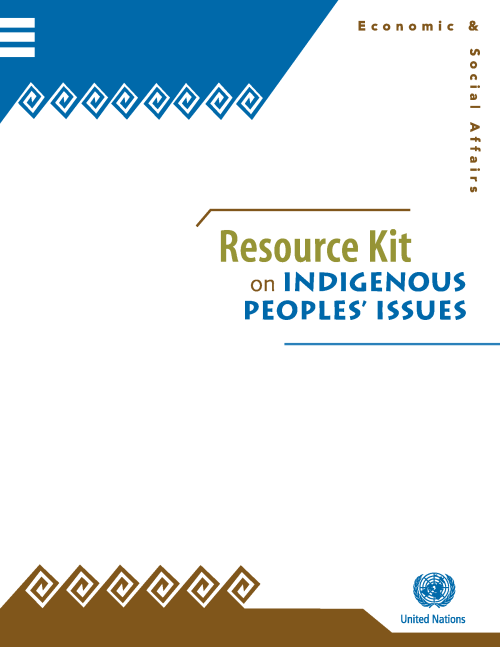
SPFII, in cooperation with ILO, UNICEF, UNDP, UNFPA and SCBD has published the Resource Kit on Indigenous Peoples Issues. The Kit is aimed UN Country Teams (UNCTs), and other development agents, providing them with guidance as to how to engage indigenous peoples and include their perspectives in development processes.
The World e-Parliament Report 2010 examines how global and regional inter-parliamentary cooperation can exploit synergies among nations to help parliaments in developing countries bridge the digital divide by overcoming the barriers of limited resources and technical constraints. It proposes to the parliamentary and donor communities a shared framework for e-parliament based on strategic goals that serve democracy, good governance, and the attainment of the internationally agreed development goals.
The 2010 United Nations e-Government Survey: Leveraging e-government at a time of financial and economic crisis was completed in December 2009 and launched in early 2010. The report presented various roles for e-government in addressing the ongoing world financial and economic crisis. The public trust that is gained through transparency can be further enhanced through the free sharing of government data based on open standards.
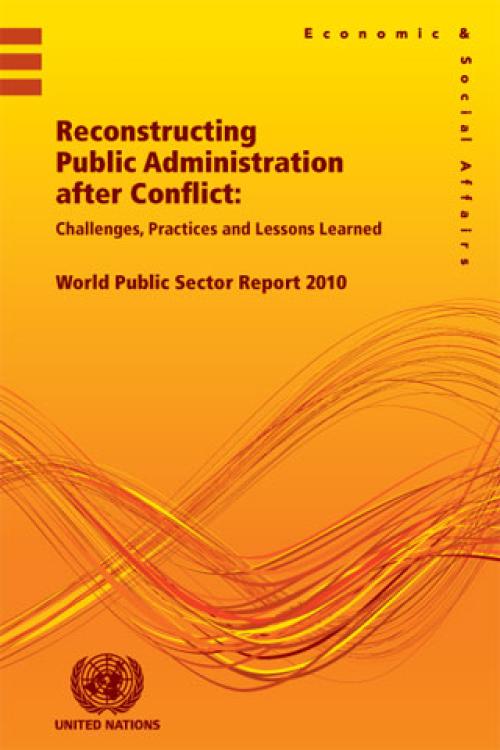
Reconstructing Public Administration after Conflict
The 2010 World Public Sector Report brings to the fore a very critical issue - how to reconstruct public administration in post-conflict situations so as to enable it to promote peace and development in countries that have been affected by civil war and destruction. It is a question that has remained unresolved for decades and has brought poverty, despair, and death to people in many corners of the world. The Report shows that no progress can be made in promoting peace, development and protection of human rights unless appropriate governance and public administration institutions are established, leadership and human resources…
There are over 370 million indigenous people in some 90 countries, living in all regions of the world. The situation of indigenous peoples in many parts of the world is critical today. Poverty rates are significantly higher among indigenous peoples compared to other groups. While they constitute 5 per cent of the world's population, they are 15 per cent of the world's poor. Most indicators of well-being show that indigenous peoples suffer disproportinately.
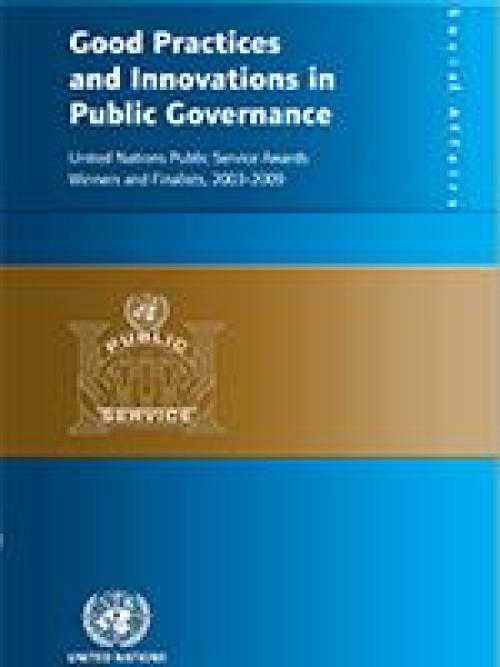
This publication provides an overview of 85 successful innovations in governance and public administration from 40 countries that received the United Nations Public Service Awards, which is the most prestigious international recognition of excellence in public service. The purpose of this book is to disseminate, through descriptive case studies, information about innovative practices by looking at the problem that led to an innovation; the solution that was designed and implemented to respond to the specific challenge; the actors and steps involved in the innovation process, and lessons learned. Learning more about how public institutions from around the world have solved difficult…
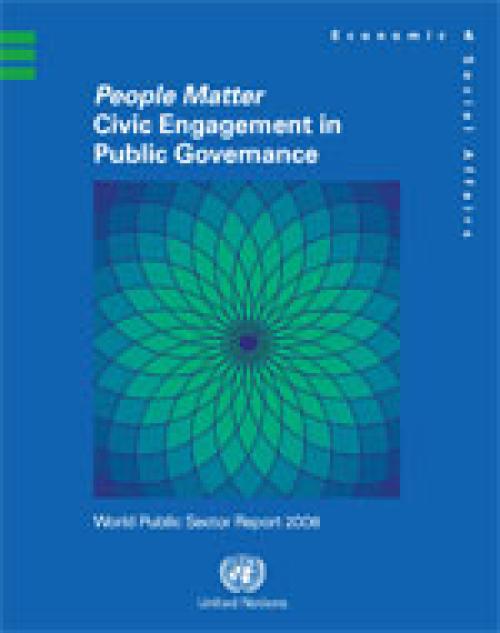
People Matter: Civic Engagement in Public Governance
The 2008 World Public Sector Report, People Matter: Civic Engagement in Public Governance, highlights the importance of civic engagement in public governance and by profiling several case studies, demonstrates how such practices gain the capacity to strengthen governance, make it more transparent and accountable and most importantly, contribute to developmental outcomes that are more sustainable, equitable and just. The Report also highlights several challenges and cautions that adequate attention must be given to the issues of power relations, institutional capacities of the government as well as the civil society organizations…
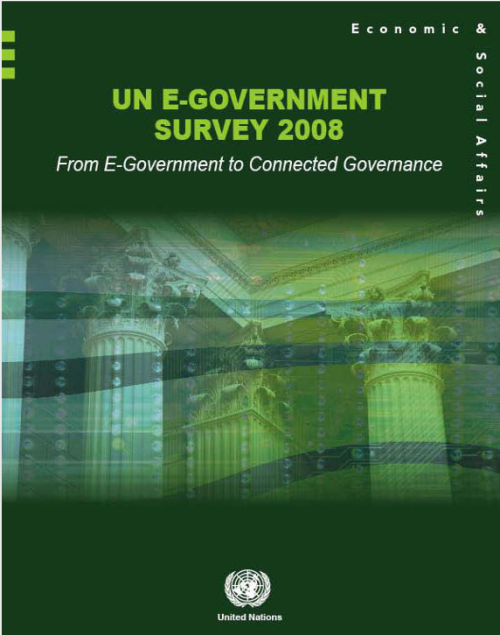
The UN E-Government Survey 2008: From E-Government to Connected Governance assesses the E-Government Development of the 192 Member States of the UN according to a quantitative composite index of e-readiness based on website assessment, telecommunication infrastructure, and human resource endowment. ICTs can help reinvent government in such a way that existing institutional arrangements can be restructured and new innovative arrangements can flourish, paving the way for a transformed government.
The focus of the report this year, in Part II, is e-government initiatives directed at improving operational efficiency through the integration of back-office functions. Whilst such…
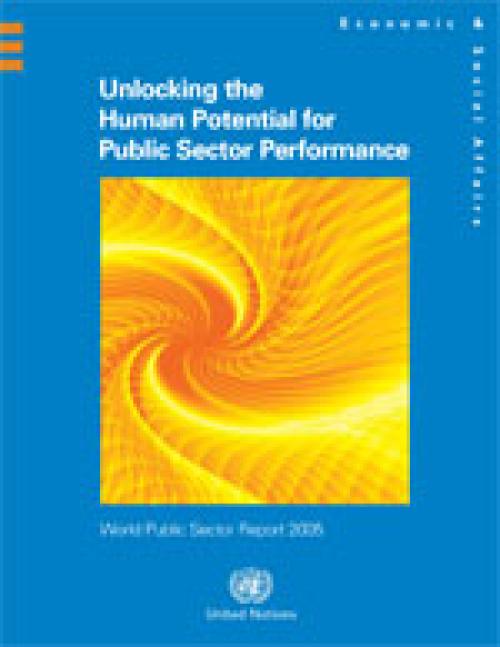
unlocking the Human Potential for Public Sector Performance
As recommended by the UN Committee of Experts on Public Administration (UNCEPA), the third World Public Sector Report will be published in 2005, with a particular thematic focus on human resources management (HRM). More specifically, the report will explore how the human potential can be unlocked to enhance public sector performance. UNCEPA, at its Second Meeting in April 2003, stressed that human resources capacity was critical to the quality of public administration. The increasing complexity of both policy-making and administrative processes, as well as the erosion of human resources capacity to carry out those…
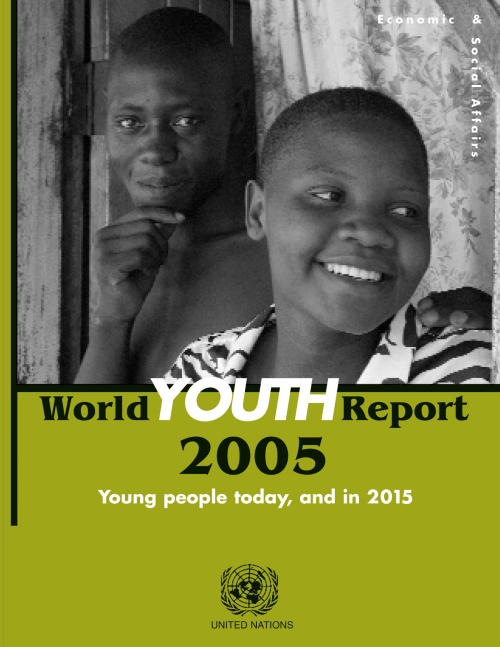
The year 2005 marks ten years since the General Assembly adopted the World Programme of Action for Youth in 1995. This report, an official report to the General Assembly, called for a renewed committment to the goals of the World Programme of Action, since over 200 million youth were living in poverty, 130 million youth were illiterate, 88 million were unemployed and 10 million young people were living with HIV/AIDS.
In the World Youth Report 2005, it is argued that too often, youth policy is driven by negative stereotypes of young people, including delinquency, drug abuse and violence. What seems to be forgotten is that young people are a positive force for development, peace,…
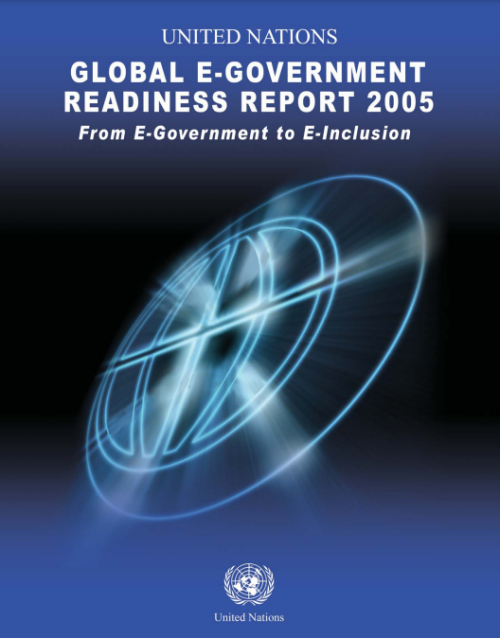
The spread of information technologies to a select group of people in the world is worsening disparities between the e-haves and the e-have-nots. There is a danger that unequal diffusion of technology, far from fomenting cohesion by providing opportunity, will result in reinforcing the traditional patterns of economic and social inequalities which will lead to a weakening of social bonds and cultural organization.
Exploring the interlinkages between e-government and human development, Part II of the UN Global E-Government Development Report 2005 points to the need to place development thinking within what it terms as the Socially Inclusive…
 Welcome to the United Nations
Welcome to the United Nations